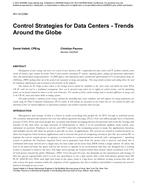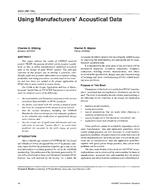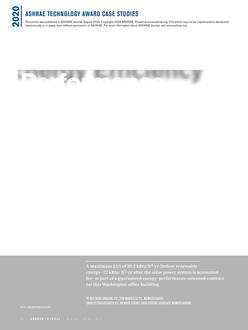Two approaches to energy-integrated design have been used by the author in several large building applications to shift a major portion of the air-conditioning load from standard vapor compression refrigeration to more energy-efficient or cost-effective cooling techniques. One approach separates latent cooling from sensible cooling and removes the dehumidification task from the electrically driven vapor compression machine. A moisture-absorbing desiccant is used to dehumidify. Energy required by the desiccant dehumidification process is provided by (1) nonrefrigerated cooling tower water, which removes the latent heat released by the absorption process; and (2) an integrated selective-energy system, which provides heat to regenerate the desiccant from a cogenerator set, off-peak electric utility energy via thermal storage tanks, and solar energy where appropriate. Three applications of this general approach are described: the 765,000 ft2 Social Security Administration Metro West facility in Baltimore; the 110,000 ft2 Monroe County Courthouse in Stroudsburg, PA; and a 168,000 ft2 addition to the Veterans Administration Hospital in Washington, DC.
The second design approach involves innovative means to divert the solar cooling load before it impacts the refrigeration system and make use of the recovered heat. Two applications are described, both of which, in different ways, utilize the window system as a functioning part of the HVAC system to intercept and remove most of the solar heat before it enters the occupied spaces. Applications described are a 152,000 ft2 corporate headquarters building in Madison, NJ, and the 100,000 ft2 Denver Board of Education building.
Units: I-P
Citation: Symposium, ASHRAE Transactions, 1986, vol. 92, pt. 1B, San Francisco
Product Details
- Published:
- 1986
- Number of Pages:
- 12
- File Size:
- 1 file , 1.3 MB
- Product Code(s):
- D-SF-86-19-1


